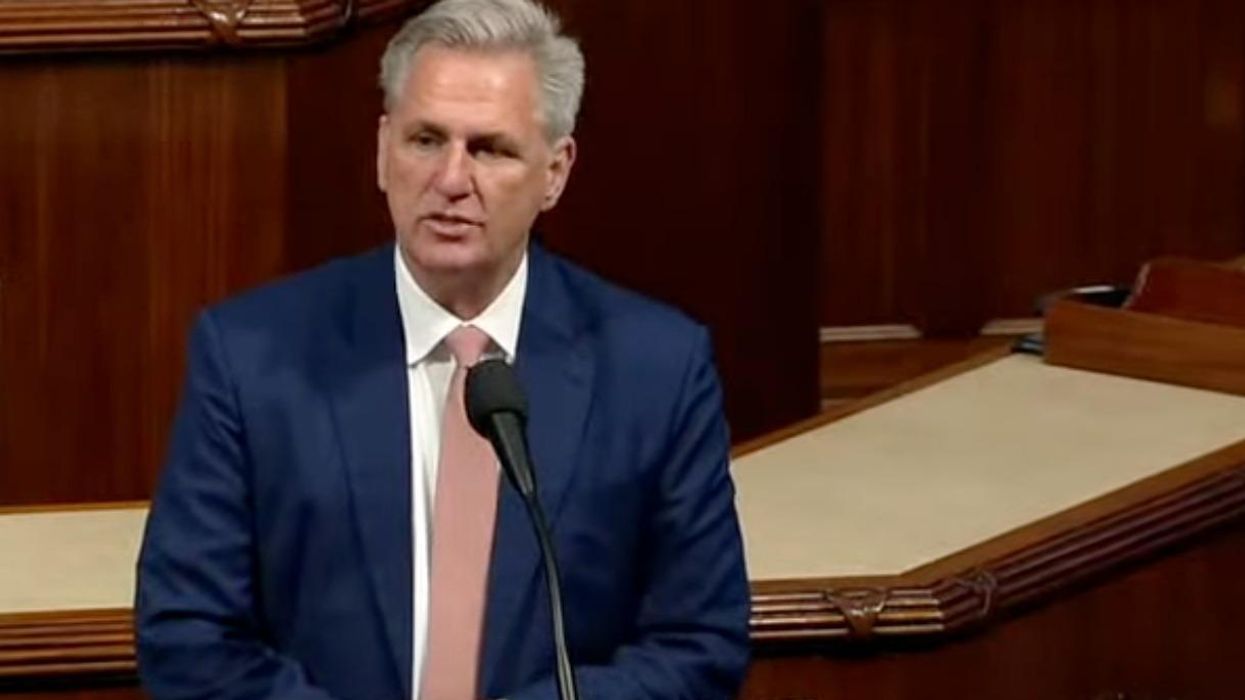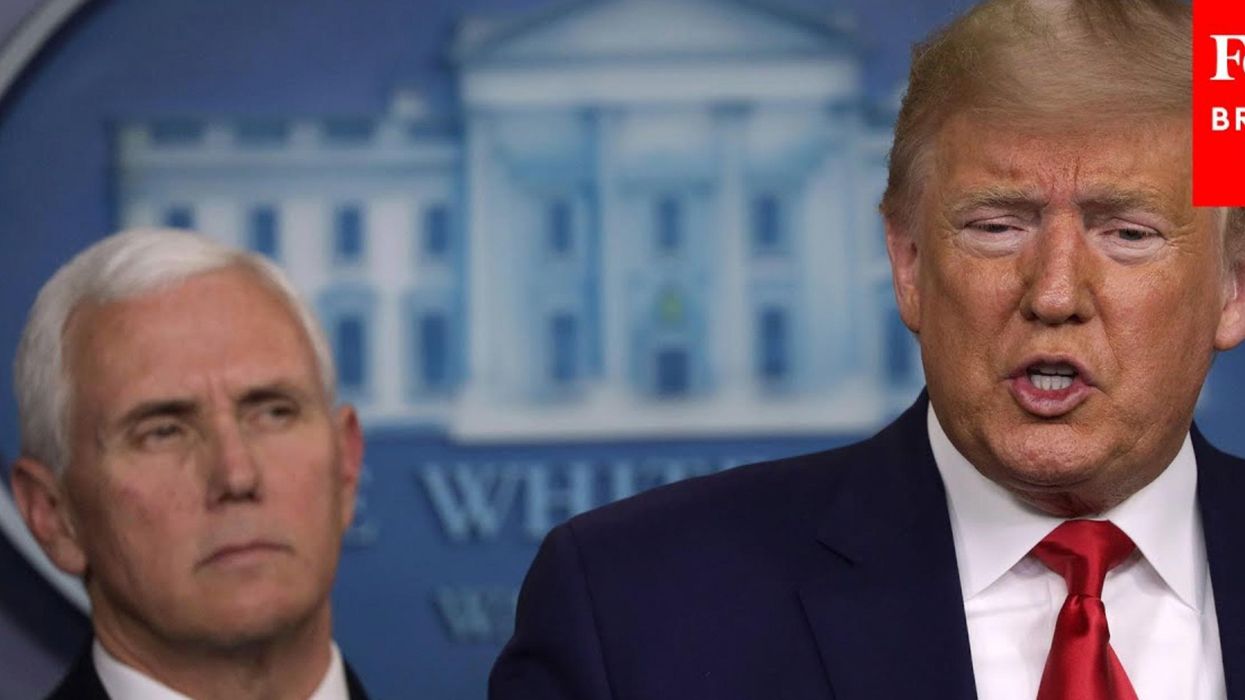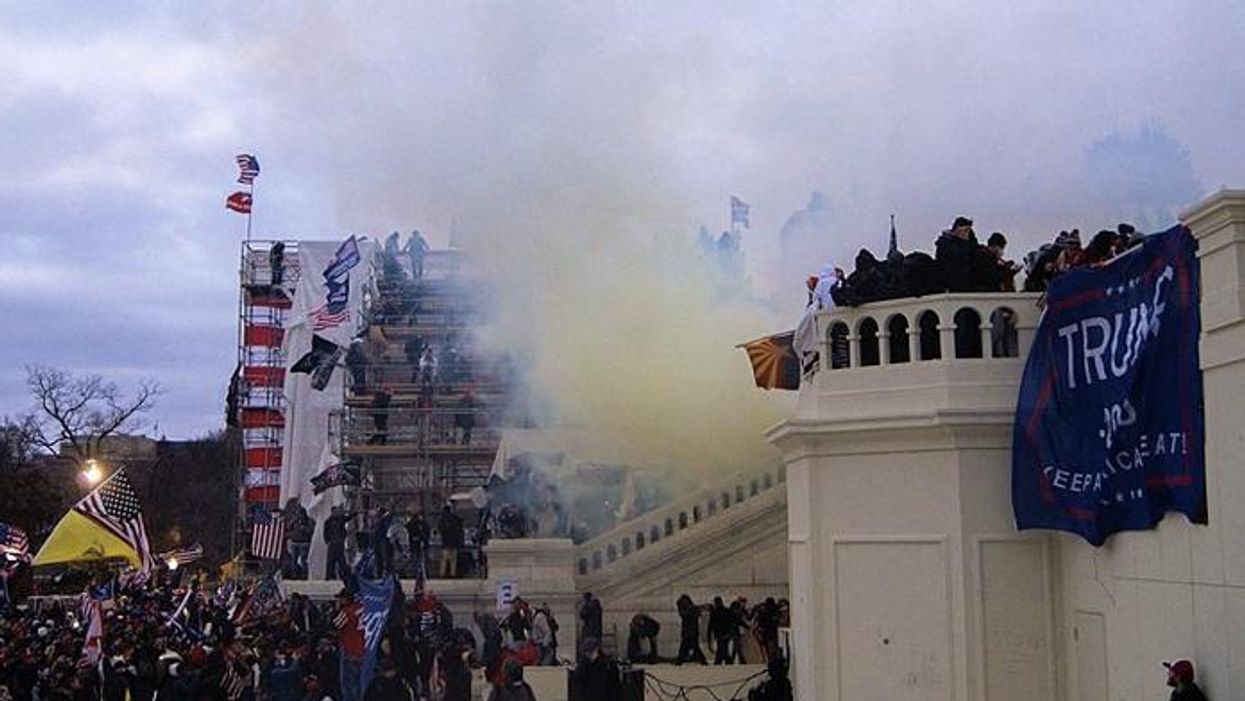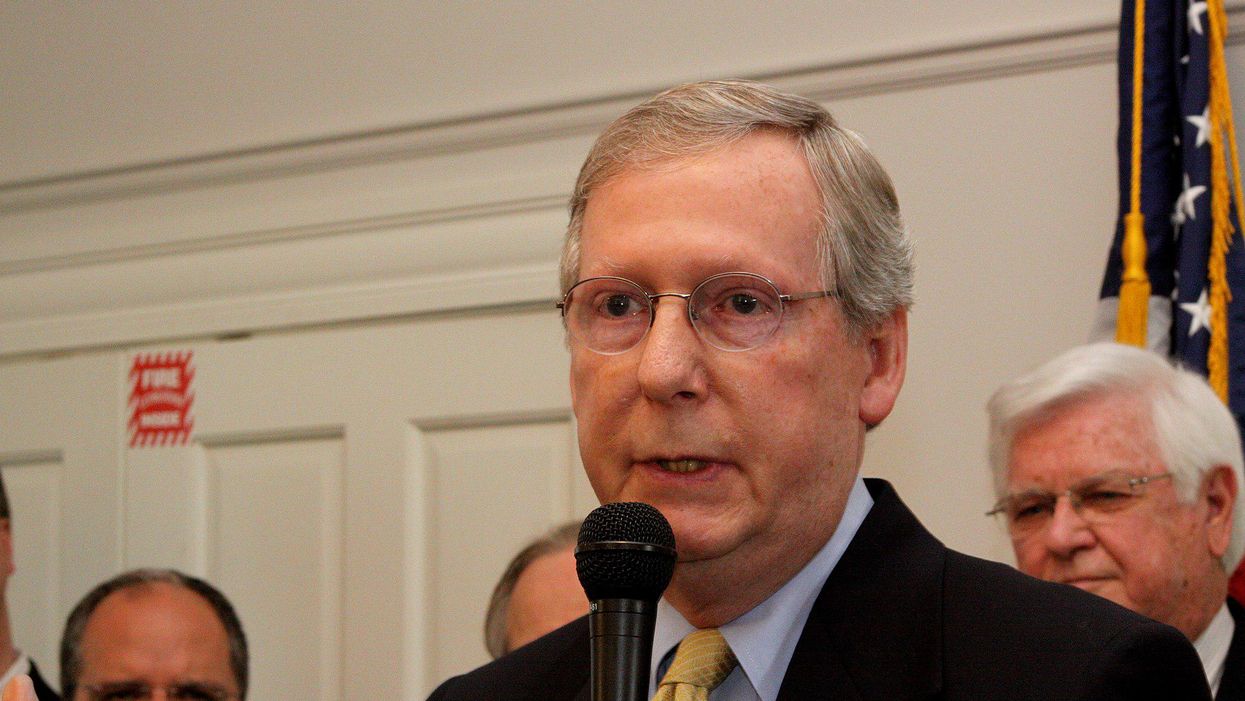Defying Subpoena, McCarthy Rejects Select Panel's Oversight
The leader of House Republicans Kevin McCarthy has responded to his subpoena from the House Select Committee with a lengthy letter from his attorney, arguing, like others have tried and failed before him, that the panel lacks “valid legislative purpose.”
And as for his own discussions with former President Donald Trump—impeached for inciting the insurrection at the U.S. Capitol last year—those details, McCarthy argues, are not subject to oversight.
McCarthy’s response also came with a list of demands, much like his colleague in the House and fellow Trump-ally Rep. Jim Jordan of Ohio. But unlike Jordan, who at the very least offered to provide an "adequate response” if his requests were met, McCarthy’s attorney, Elliot Berke, opted instead to present only McCarthy’s challenge to the committee’s authority—with the demand that members on the panel defend their “legal rationale” for issuing the subpoena.
“It is unclear how the Select Committee believes it is operating within the bounds of law or even within the confines of the authorizing resolution,” Berke wrote in the 11-page letter to committee chair Bennie Thompson.
He, like Jim Jordan, wants the committee to meet a list of demands including all the "legal rationale" they have used to premise their requests.
— Brandi Buchman (@Brandi_Buchman) May 27, 2022
Something tells me there's an attorney just waiting to oblige him. pic.twitter.com/r1ZkXAMKXd
As for the California Republican’s conversations with Trump on the day of the attack—the details of which the committee has sought for months and beyond what has potentially been publicly reported—McCarthy’s attorney says that information would effectively have no bearing on whatever legislative agenda the probe might have.
”Of course, the Select Committee has no valid legislative interest or oversight authority to question the Leader about public statements he has already made to the press or in the House Chamber,” Berke wrote.
McCarthy, through his attorney, also accused the committee of wishing to “interrogate him” politically and slammed the panel as unconstitutional and acting beyond the “power of inquiry as decreed by our Founding Fathers.”
Federal courts have already established that the committee has a valid legislative interest in investigating the events leading up to January 6. This decision was rendered in John Eastman’s fight to keep the committee away from documents it deemed pertinent to the probe’s fact-finding mission and again when the Republican National Committee tried to shield data from the committee about its fundraising materials.
Those documents, the committee has argued, were entrenched with the former president’s falsehoods and lies about the outcome of the 2020 election and this was used to effectively defraud the public.
McCarthy Letter to Bennie T... by Daily Kos
The response also contends at length that the committee itself was improperly formed because just nine members sit on it and the resolution states the speaker “shall appoint 13 members to the select committee, 5 of whom shall be appointed after consultation with the minority leader.”
But McCarthy had his chance to nominate picks to the committee. Some of his picks were accepted by Pelosi and others were denied. When Pelosi sent two of the nominees back—including Trump stalwart Jim Jordan—McCarthy, to borrow a phrase, took his ball and went home.
He ended negotiations cold and established clearly that he would not continue engaging with the committee.
The January 6 committee, as it stands today with nine members, includes seven Democrats and two Republicans.
An investigatory body was initially proposed and designed to be an independent, truly bipartisan commission. Democrats suggested splitting membership right down the middle, affording equal subpoena powers to both their party and the Republican Party.
But this proposal couldn’t muster enough support in the Senate and as such, the dreams of that commission were shut down.
Republicans continued to balk, largely, at holding any investigation at all. In the House, only two Republicans—the only two that now serve on the committee, Reps. Liz Cheney and Adam Kinzinger—voted in favor of forming the select committee.
The House passed the resolution.
Five members of the House including McCarthy and Jordan have been hit with subpoenas for their records and depositions. The committee also sent subpoenas to Reps. Scott Perry of Pennsylvania, Mo Brooks of Alabama, and Andy Biggs of Arizona. To a man, each have have refused to comply.
Reprinted with permission from Daily Kos.












